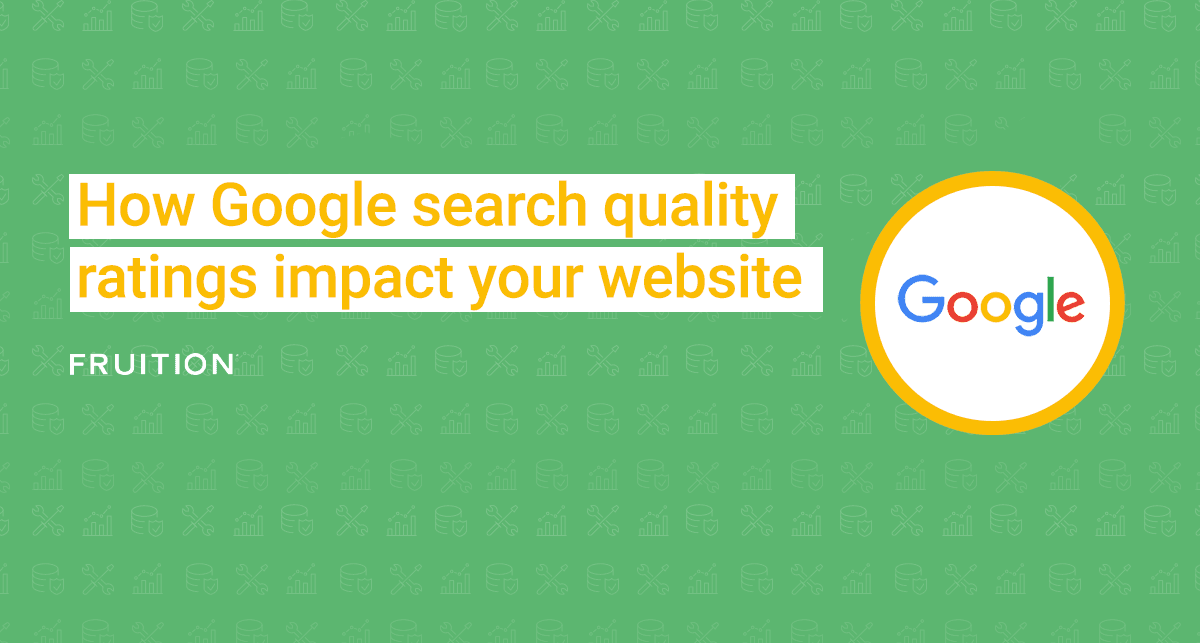Leverage Google Search Quality Ratings for Optimized Web Impact

Leverage Google Search Quality Ratings for Optimized Web Impact
Use Google Search Quality Ratings to Benefit Your Website
On May 16, it was announced that the Google Search Quality Ratings Guide had been updated. Guides like this provide insight into the criteria Google values in its search algorithms, and can thus be useful for site owners wondering how to optimize their pages to rank highly in search results. This article will look at what Google’s search quality ratings are and how they’re used, how page quality is measured, and how your website can benefit from this information.
Overview of Search Quality Ratings
To get SEO benefit from Google’s Search Quality Ratings Guide, it is important to understand what it is and how it is used. The guide is a 150-page set of instructions for Google’s search quality evaluators. Over 10,000 people worldwide are contracted with Google as search quality raters. These raters are given actual Google search results pages, then asked to rate the quality of the pages that appear in the top results according to the criteria laid out in the guide. It is important to note that the ratings given by these evaluators does not directly affect the sites which appear in Google’s results – manual penalties are not handed out to sites which receive low scores from the evaluators. Instead, the feedback from these raters is used to improve Google’s search algorithms, adjusting it so that it will automatically deliver results that align with Google’s criteria for quality.
Important Aspects to Consider in Regards to Your Own Website
The criteria which Google’s evaluators use when rating a page can be broken down into three categories: page quality rating, EAT rating, and other quality factors. The first category, page quality rating, ranks how well a page achieves its purpose. This is regardless of what that purpose is – a page with the purpose of merely providing entertainment is just as capable of receiving a high page quality rating as a page dealing with more serious matters. That said, Google provides special scrutiny to pages “could potentially impact the future happiness, health, or financial stability of users”. Such pages are called Your Money Your Life pages, or YMYL pages for short; and because of the potential consequence they hold for visitors’ financial and medical well-being, they are held to a higher standard of quality. The second category, EAT rating, stands for Expertise, Authoritativeness, and Trustworthiness. It deals with how experienced, knowledgeable, and overall trustworthy a source a site is on its subject. This is particularly important where YMYL pages, where advice should come from accredited experts in the appropriate area, such as financial, medical, or legal professionals. Non-YMYL sites, which don’t necessarily require formal expertise, are held to less stringent standards; they can receive a high EAT score simply for the author having personal life experience rather than formal credentials, provided that the content is detailed and comprehensive enough. Note that EAT rating is entirely separate from page quality rating: a page can fulfill its purpose despite not being authoritative, or can be written by experts but fail to deliver what it promises. Both separate ratings are taken into account to determine the page’s final score. Finally, there are a variety of other quality factors which do not fit neatly into the preceding categories, but can nevertheless have an impact on a page’s final rating. For instance, Google asks raters to consider the amount and quality of a page’s main content (parts of the page which directly contribute to achieving its purpose), supplementary content (extra parts of the page which help it better achieve its purpose but are not the main purpose), and advertisements. A page should have a satisfying amount of main content, and said content should be high-quality – defined by Google as being clear and easy to determine, detailed and comprehensive, and created with a significant amount of time, effort, expertise, and/or skill. A website should also post information about who is responsible for the site and who authored the content in an easily-found location, such as on an “about us” or “contact us” page. Raters are told to check each website’s reputation according to independent reviews or ratings. And finally, a site should be mobile-friendly, meaning that it can be displayed without difficulty on mobile devices.
Takeaways from the Google Search Quality Ratings
Learning what factors are considered by Google as indications of page quality from the Google Search Quality Ratings Guide, allows you to use this information to your benefit by making a website that adheres to Google’s quality standards, and thus is likely to benefit from updates focused on improving the rankings of pages which meet those standards.
After learning from the guide what factors are considered by Google as indications of page quality, you can use this information to your benefit by making a website that adheres to Google’s quality standards, and thus is likely to benefit from updates focused on improving the rankings of pages which meet those standards. Keep in mind page quality rating and EAT rating, and make pages that deliver high-quality content written by experienced, authoritative, and trustworthy authors. Make sure that advertisements on your pages are not disruptive to user experience and are clearly distinguished from the actual content. And optimize your site to be mobile-friendly, so that it will load quickly and display properly on all devices. These are just a few of the takeaways from reading Google’ guidelines. While it may be intended as instructions for Google’s evaluators, it can just as easily serve as a roadmap for constructing a site which will be ranked highly by Google’s algorithms.
Conclusion
Google’s Search Quality Ratings Guide is a potentially useful tool for site owners wondering how to build pages in a way that will get them noticed by Google’s ranking algorithm. Familiarize yourself with the guidelines Google uses for measuring a page’s quality, and make sure your site aces them. When the next Google algorithm update arrives, you will reap the benefits. References “Google Search Quality Guidelines: Top 16 Things You Need to Know” by Clayton Johnson. The Hoth. November 30, 2017. https://www.thehoth.com/blog/google-search-quality-guidelines/ “Google Updates Quality Rater Guidelines Targeting E-A-T, Page Quality & Interstitials” by Jennifer Slegg. The SEM Post. May 17, 2019. http://www.thesempost.com/google-updates-quality-rater-guidelines/





